Meet the 2025 Hurst Fellows.
- T.C.A. Achintya
- Marco Basile
- Kathryn Blair
- Heather Carlquist Walser
- Du Fei
- Brianne Felsher
- Eduardo Garcia-Molina
- Vladislav Lilic
- Alexandre Pelegrino
- Britney Wilson
- Weilin Xiao
- Magdalene Zier
Full Details
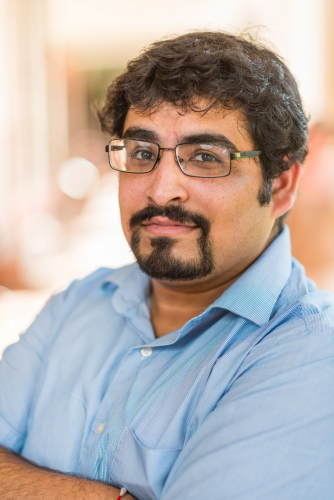
T.C.A. Achintya
- 2025 David Seipp Fellowship in English Legal History
- Postdoctoral Teaching Fellow, University of Virginia
- Ph.D. in History, University of Virginia
- B.A., Delhi College of Arts & Commerce
Biography
T.C.A. Achintya received his Ph.D. in History from the University of Virginia in May 2025. After graduation, he will be a postdoctoral teaching fellow at Virginia with the Jefferson Scholars Foundation and teach courses under the University’s Engagements Curriculum.
His dissertation, "Practitioners of the Law: Legal Professionals in British South Asia 1770-1870," examines how competition and conflict among legal professionals shape law. It tells the story of Indian practitioners overcoming racial hostility and exclusion under colonial rule, pushing their way into the legal system and making it their own. Demonstrating the importance of everyday law in shaping systems, it describes how Indian lawyers and law officers transformed colonial law from below. They made colonial authorities dependent on them even as they built a culture of resistance and resilience that laid the foundations for modern anticolonialism.
For his work, Achintya has received numerous awards and fellowships. These include the Albert Gallatin Graduate Research Fellowship from the University of Virginia and the James Whitman/Yale Law School Fellowship from the American Society for Legal History in 2022. In 2023, he was inducted into the Raven Society, UVa's oldest honorary society. He received the Raven Scholarship in 2024 and the Raven Award, the Raven Society's highest honor recognizing excellence in academia, service, and contributions, in 2025.
Achintya received his B.A. with Honors in History in 2015 from the Delhi College of Arts & Commerce, an M.A. in History in 2017, and his M.Phil. in Modern Indian History in 2019 from the University of Delhi. At the University of Virginia, he has served as a Graduate Teaching Consultant at the Center for Teaching Excellence, the graduate coordinator for the Islamic Worlds Initiative at UVa, and the Vice President of Administration for the Graduate School of Arts and Sciences Council.
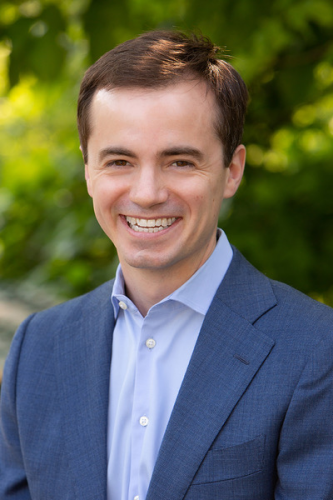
Marco Basile
- Alexander Fellow, New York University School of Law
- Assistant Professor, Boston College Law School
- J.D., Harvard University
- Ph.D. in History, Harvard University
- MPhil in Political Thought and Intellectual History, University of Cambridge
Biography
Marco Basile is an Alexander Fellow at New York University School of Law and will join Boston College Law School as an Assistant Professor in summer 2025. Basile is a historian who researches U.S. public law in a global context. His interests span the constitutional law of foreign relations, international law, jurisdiction and conflict of laws, transnational litigation, and legal interpretation. His most recent article on the historical relationship between U.S. constitutional law and international law is forthcoming in the University of Chicago Law Review. His writing has also appeared in the Virginia Law Review and Harvard Law Review, among other venues.
He currently serves as the Book Reviews Editor for the American Journal of Legal History, and he previously taught at Harvard Law School as a Climenko Fellow and Lecturer on Law. Before entering academia, he was an issues and appeals litigator in Boston. He clerked for Justice Ruth Bader Ginsburg on the U.S. Supreme Court and Judges David Barron and Paul Watford on the federal courts of appeals.
Basile holds a JD and PhD in History from Harvard and an MPhil in Political Thought and Intellectual History from the University of Cambridge.
During graduate school, he served as the Book Reviews Chair for the Harvard Law Review, an associate at the Weatherhead Center for International Affairs, and a resident pre-law tutor at one of Harvard’s undergraduate residential colleges. For his work with students, Harvard awarded him the John R. Marquand Award for Exceptional Advising and Counseling of Harvard Students.
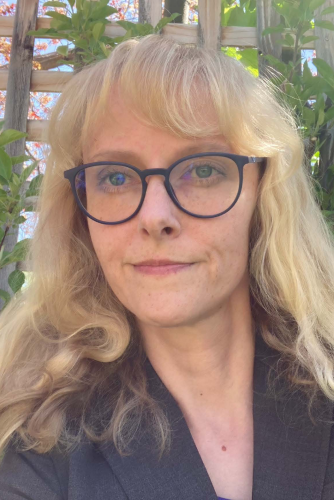
Kathryn Blair
- 2025 Morton Horowitz Fellowship
- Research Fellow, BYU Law
- PhD in History, Yale University
- J.D., Stanford Law School
- M.A. in Russian, Eastern European, and Eurasian Studies; Stanford University
- B.A. in History, Stanford University
Biography
Kathryn Blair is a Research Fellow at BYU Law. Her research interests include law and empire, sovereignty, citizenship, and the international system. Kathryn received her PhD in History from Yale University in December 2024. Her dissertation, “A Jurisprudence of Loyalty: Empire, Treason, and Sovereignty in Colonial Natal, 1899-1909,” considers a series of treason trials that arose from the South African War and the Bambatha Rebellion in British colonial Natal, now a part of South Africa.
The Special Court, created in 1900 and again in 1908, to hear these cases occupied a liminal space between the rule of law and martial law. Her project asks how the Special Court and the treason trials decided by it can be used to assess circulating concepts of sovereignty, the colonial state, allegiance and loyalty in colonial Natal.
Prior to Yale, Kathryn worked as an attorney, focusing on international trade and investment law. She received a JD from Stanford Law School, an MA in Russian, Eastern European, and Eurasian Studies from Stanford University, and a BA in History from Stanford University..
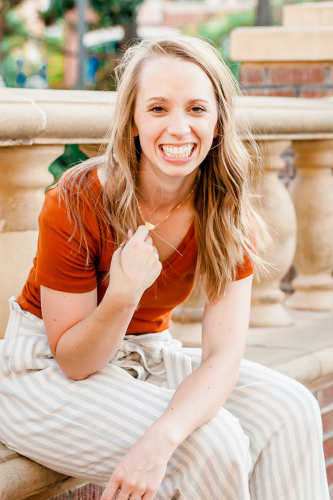
Heather Carlquist Walser
- 2025 Harry Scheiber Fellowshi
- Postdoctoral Fellow, Southern Methodist University
- Ph.D. in History, Pennsylvania State University
Biography
Heather Carlquist Walser is currently a postdoctoral fellow at the Center for Presidential History at Southern Methodist University. She received her PhD in history from Pennsylvania State University.
She is a historian of the eighteenth and nineteenth-century United States, specializing in politics and law. Her research explores how people in the United States and its peripheries imagined, understood, and worked out the contours of federalism and sovereignty, justice and the rule of law, constitutional meaning, and the evolution of rights and citizenship in the context of their everyday lives. She is particularly interested in understanding what governance was and how it functioned at a local level in the early United States.
Her current project, Negotiating Peace and Power: Amnesty in the Early United States, examines the role of amnesty in establishing peace after violent conflicts in the early United States. It demonstrates how government officials used amnesty as a tool of governance to resolve violent conflicts rooted in complex constitutional questions, project an image of federal power and sovereignty, and accomplish political goals throughout the eighteenth and nineteenth centuries.
She is also working on a project about the development of the “core constitutional powers” granted to the president in Article II of the Constitution and how the potential and uncertainty of constitutional limits has shaped executive power and American politics. Her earlier scholarly work about the inner workings of federalism and the importance of considering national and international issues in local contexts has been published in the Journal of the Early Republic.
Heather’s work has been supported by multiple institutions, including the Historical Society of Pennsylvania, the Massachusetts Historical Society, the Charles Redd Center, and the Kansas Historical Society
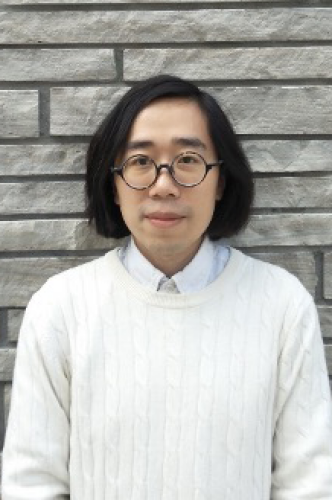
Du Fei
- 2025 Hendrik (Dirk) Hartog Fellowship
- Assistant Professor, University of Oklahoma
Biography
Du Fei is an Assistant Professor of history at the University of Oklahoma. Fei specializes in the history of gender and Islam in South Asia's global connections in the early modern and colonial periods.
Fei is currently completing his first book, Local Women, Global Histories?, which studies Muslim women’s participation in the local and transregional economic life that converged in India from the seventeenth to the early nineteenth centuries.
More broadly, Fei's research interests include gender and sexuality, Islamic law, material history, history of knowledge, and digital humanities.
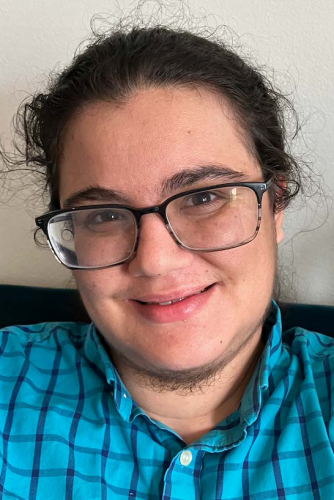
Brianne Felsher
- 2025 Reva Siegel Fellowship
- Ph.D. Candidate; University of California, Berkeley
- J.D., Berkeley Law
- B.A., Columbia University
Biography
Brianne Felsher is a PhD candidate in Jurisprudence and Social Policy at University of California, Berkeley. Their dissertation project focuses on the legal history of queer families in the United States from the early 1800s through the early 1900s.
Their research examines the intersections between legal history, family law, and queer history. They argue that queer people deliberately navigated legal institutions to form their families, and that queer families were neither inconceivable nor presumptively illegal.
Their article, “‘Sex Changed by a Court’s Decree’: The History-and-Tradition of Gender Transitions in the United States,” is forthcoming in Georgetown Law Journal. This article focuses on the legal history of transitioning, and it argues that gender transitions are deeply rooted in US history and tradition. Their work has been supported by the William Nelson Cromwell Foundation and the Phi Beta Kappa Northern California Association.
They have a JD from Berkeley Law and a BA from Columbia University.
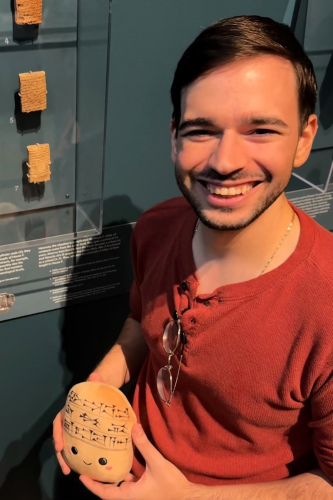
Eduardo Garcia-Molina
- 2025 Lawrence Friedman/Stanford Law School Fellowship
- Ph.D., University of Chicago
- Postdoctoral Researcher, University of Illinois Urbana-Champaign
- Assistant Professor, University of Illinois Urbana-Champaign
Biography
Eduardo García-Molina (Ph.D. University of Chicago) is a Postdoctoral Researcher, and starting in Fall 2025 an Assistant Professor, in the Department of Classics and the Humanities Research Institute at the University of Illinois Urbana-Champaign. An Ancient Historian specializing in the Seleucid Empire, one of the successor kingdoms after the death of Alexander the Great, his research examines the recordkeeping practices and archives of the Seleucids across their vast territories, which stretched from modern Turkey to Afghanistan at the empire’s apex.
He is particularly interested in the contribution that material conditions and information technologies (i.e., documentary media, sealing practices, formatting, archival storage and retrieval) had on the realization of protocol and law within the Seleucid Empire. His research attempts to recreate the experience of imperial subjects through their engagement with these documents and archives. In doing so, he hopes that the Seleucid Empire can be better understood and studied alongside the more recognized bureaucratic premodern empires of the Ptolemies, Romans, and Han.
As a Hurst Fellow, he will be developing a forthcoming article on an epigraphic corpus of sacred manumissions, the Greek practice of freeing the enslaved through dedication to gods, from Seleucid Iran alongside workshopping his first monograph, tentatively titled Empire by the Books: Archives, Records, and Information in the Seleucid Empire.
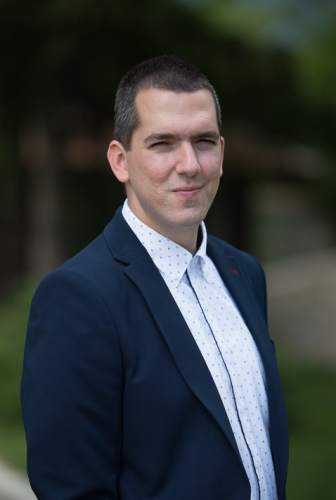
Vladislav Lilic
- 2025 Robert Gordon Fellowship
- Assistant Professor, Florida International University
- Ph.D. in History, Vanderbilt University
Biography
Vladislav Lilić is an Assistant Professor of Modern European History at Florida International University. He is a scholar of Eurasian empires whose research focuses on the legal and social histories of statecraft, diplomacy, and identity building in the nineteenth-century Balkans. He earned a Ph.D. in History from Vanderbilt University.
His first book (in progress), Empire of States: Law and Interpolity Order in Ottoman Europe, 1830-1878, traces how jurisdictional disputes and local controversies about the location of legal authority transformed the regional imperial order. The monograph focuses on two “provincial states” – the autonomous Ottoman principalities of Serbia and Montenegro.
Empire of States foregrounds provincial elites’ troubled assertion of power over the Ottoman legal arenas of landholding, subjecthood, border-making, and public peace. This chaotic attempt at bureaucratic streamlining in the age of imperial crisis and reform pitted provincial statesmen against the centralizing empire and their own subject populations.
In such fractured legal universe, princes, pashas, middling Montenegrin, Serb, and Ottoman provincial officials, bewildered European consuls, and droves of not-so-ordinary people – herdsmen, tribal elders, journeymen, captives, and obstinate sex workers – jockeyed for favored definitions of jurisdiction, sovereignty, and legitimate rule. In contrast to conventional narratives that emphasize nationalist ideologies and popular movements, the project reveals how small nationalizing states formed through the conduit of imperial law, only to disjoint the empire that had begotten them.
Lilić has published historiographical essays in H-Soz-Kult and The American Historical Review. He is currently writing an article about the law of nations and the changing rules of military captivity at the Ottoman-Montenegrin frontier in the 1850s. His work in Austrian, Bulgarian, German, Montenegrin, North Macedonian, Serbian, and Turkish archives has been supported by research fellowships from the American Institute for Southeast European Studies, Association for Slavic, East European, and Eurasian Studies, the Central European History Society, and the Social Science Research Council.
As a teacher, Lilić focuses on the entwined topics of imperialism, nationalism, and (international) law in European and global contexts. He is also a regular podcast host on the New Books Network, an avid chess player, and a lifelong supporter of Partizan Belgrade.
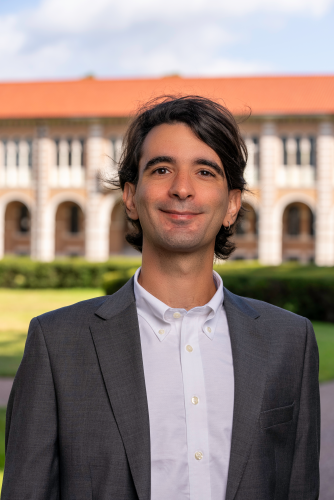
Alexandre Pelegrino
- 2025 Rebecca Scott-University of Michigan Law School Fellowship
- Assistant Professor, University of Toronto
- Ph.D. in History, Vanderbilt University
- Postdoctoral Fellow, Rice University's Humanities Research Center and SlaveVoyages
Biography
Alexandre Pelegrino is an Assistant Professor at the University of Toronto. He received his PhD in history from Vanderbilt University in 2023. Before moving to Canada, he was a postdoctoral fellow at Rice University’s Humanities Research Center and SlaveVoyages.
Alex is a historian of Latin America working on the history of slavery, Indigenous peoples, and race formation. His research considers how Indigenous enslavement persisted in eighteenth-century northern Brazil and how it connects to the enslavement of people of African descent.
Several institutions have funded his research, including the Social Science Research Council (SSRC) and the Luso-American Development Foundation (FLAD).
Alex is the author of “From Slaves to Índios: Empire, Slavery, and Race (Maranhão, Brazil, c. 1740-90),” published in Law and History Review. The article received an Honorable Mention in the Surrency Prize and the Jane Burbank Global Legal History Article Prize (2023). He is working on a book manuscript based on his dissertation, “Bonds of Belonging: Slaving, Indigeneity, and Race in Amazonia (1688-1798).”
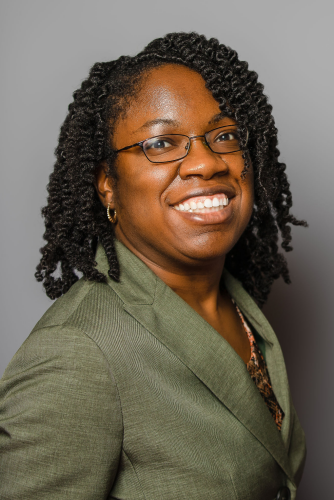
Britney Wilson
- 2025 Mary Frances Berry Fellowship
- Associate Professor of Law, New York Law School
- B.A., Howard University
- J.D., University of Pennsylvania Law
Biography
Britney Wilson (she/her) is an Associate Professor of Law and the Founding Director of the Civil Rights and Disability Justice Clinic at New York Law School. Before New York Law School, Professor Wilson was a staff attorney at the National Center for Law and Economic Justice (NCLEJ) where she litigated disability rights and excessive fines and fees cases concerning the criminalization of poverty.
Before NCLEJ, Professor Wilson was a Bertha Justice Fellow at the Center for Constitutional Rights (CCR) where she litigated discriminatory policing and abusive immigration detention practices cases. Before CCR, Professor Wilson was a Marvin M. Karpatkin Fellow in the Racial Justice Program at the national office of the American Civil Liberties Union where she litigated a range of racial justice issues from the school-to-prison pipeline to fair housing and inclusion in higher education.
Born with Cerebral Palsy, Professor Wilson has written and spoken extensively about disability, and the intersection of race and disability. In 2023, she was selected as a Health Law Scholar by the American Society of Law, Medicine, and Ethics and the Saint Louis University Center for Health Law Studies. Her scholarship has been published or is forthcoming in the University of Pennsylvania Law Review, the UCLA Law Review, the Washington and Lee Journal of Civil Rights and Social Justice, and the Journal of Legal Education.
Also an accomplished writer and artist, Professor Wilson’s work has been featured in DISABILITY VISIBILITY: FIRST-PERSON STORIES FROM THE TWENTY-FIRST CENTURY, as well as in LONGREADS, the NATION MAGAZINE, and on THIS AMERICAN LIFE.
She received her B.A. from Howard University and her J.D. from University of Pennsylvania Law.
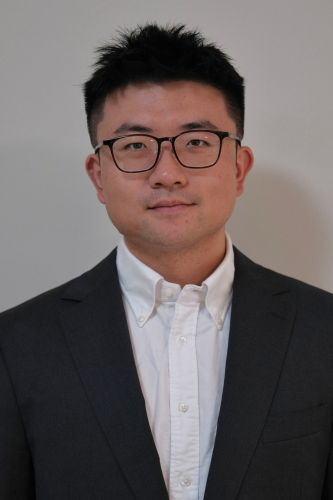
Weilin Xiao
- 2025 Charles McCurdy/University of Virginia Law School Fellowship
- J.S.D., Yale Law School
- LL.M., Yale Law School
- LL.B., LL.M.; Peking University
- Yale Fox International Fellow; School of Law, Waseda University
- Visiting Researcher, University of Tokyo
Biography
Weilin Xiao’s academic interests include family law, comparative law, and legal history, with a focus on the East Asian region. In 2021, Weilin’s Article, “Expansion and Restriction: A Comparative Study of Modernization of Family Laws in Japan and China,” was awarded the Colin B. Picker Graduate Prize by the American Society of Comparative Law. This Article has been published in the American Journal of Comparative Law.
His J.S.D. dissertation, currently undergoing revision for publication as a monograph, concerns the divergent approaches toward modernizing family laws in Japan and China. Through a comparative perspective, Weilin seeks to answer why Japan and China coordinated legal transplantation and their own customary family laws differently, and how such choices shaped the modernization of those countries in the twentieth century.
Weilin obtained his J.S.D. degree from Yale Law School in 2024, following his LL.M. degree earned in 2019. Weilin was a Yale Legal History Forum Fellow in 2023. During the 2022–2023 academic year, Weilin was a Yale Fox International Fellow at the School of Law, Waseda University. He spent the 2019–2020 academic year as a Visiting Researcher at the Institute for Advanced Studies on Asia, the University of Tokyo, under the International Dissertation Research Fellowship awarded by the Yale MacMillan Center. Prior to Yale, Weilin completed his LL.B. and first LL.M. degree at Peking University.
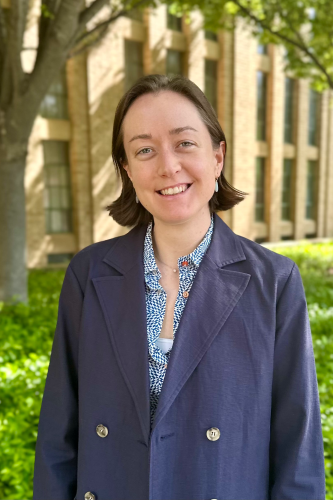
Magdalene Zier
- 2025 Barbara Welke Fellowship
- J.D., Stanford Law School
- Ph.D. Candidate, Stanford University
Biography
Magdalene is a Ph.D. candidate in History at Stanford University. She also holds a J.D. from Stanford Law School and an A.B. from Harvard College.
Magdalene’s research focuses on race, gender, and law in the late nineteenth- and early twentieth-century United States. Her dissertation, “Women at the Bar: Forging Feminism through Law and Liquor,” examines how bars became legal battlegrounds over public gender roles and over sex segregation in labor and leisure.
Her scholarship has been published in the Stanford Law Review, Michigan Journal of Gender & Law, and the Journal of the Gilded Age and Progressive Era.
She clerked on the U.S. Court of Appeals for the Ninth Circuit, and, prior to graduate school, she worked at the NAACP’s headquarters in Baltimore.
